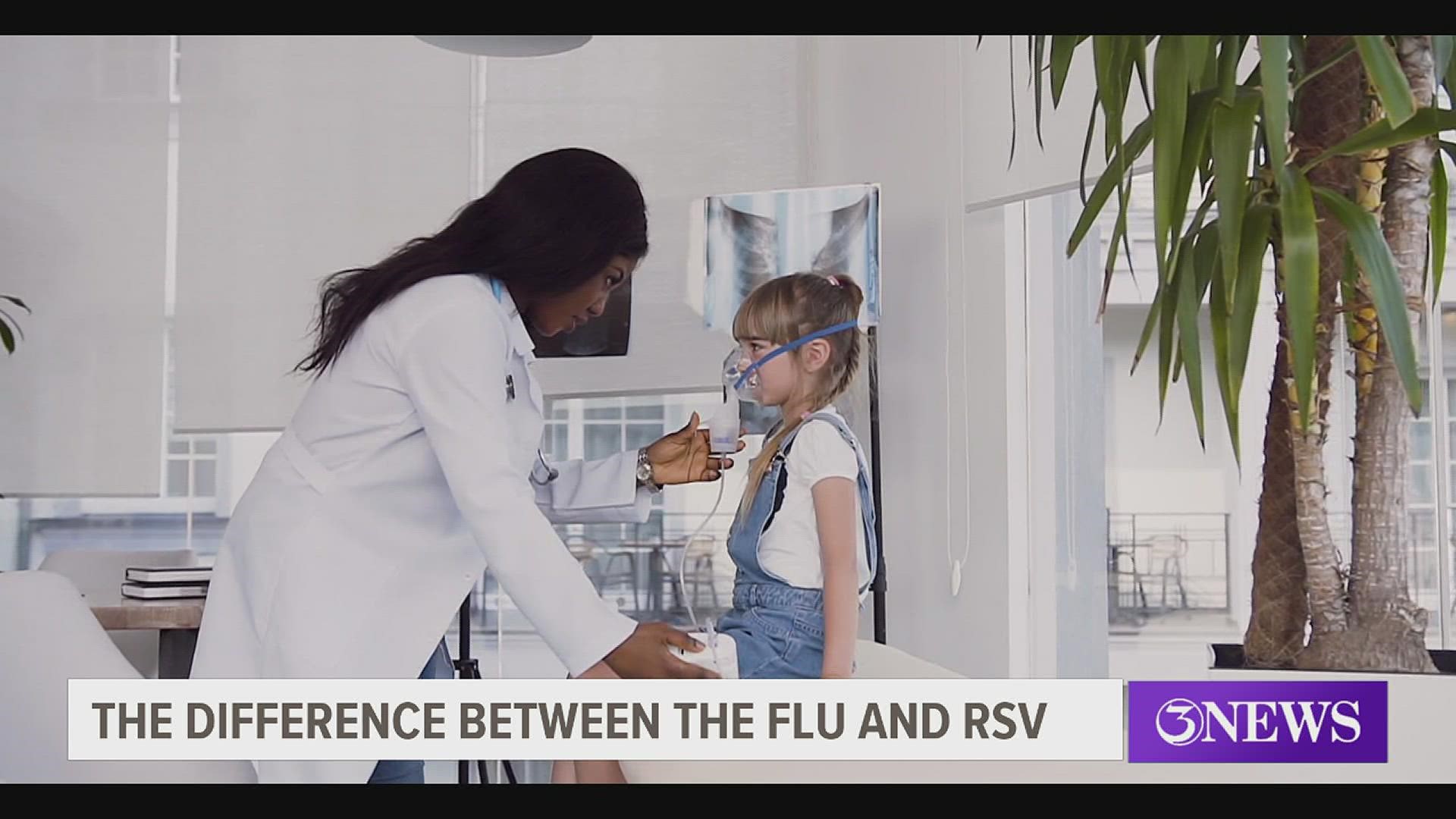CORPUS CHRISTI, Texas — Flu Season typically starts in late winter, but according to the doctors at Driscoll Children’s Hospital, this is not a typical year.
Flu season has arrived earlier than previous years, leading to more parents taking their sick children to the Emergency Room, which in turn causes longer wait times and delayed care for patients.
To circumvent this, pediatricians warn parents with young children to watch for symptoms that overlap between the flu and respiratory syncytial virus (RSV), a respiratory virus that usually causes mild, cold-like symptoms.
Since RSV can sometimes be severe in infants and young children, knowing the difference between the two can save parents from risking unnecessary trips to the Emergency Room.
While parents can expect coughing, sneezing and runny noses with any typical illness, it’s the symptoms that show up in addition to those that can help determine whether a child has a cold, the flu or RSV.
“RSV tends to wheeze and you have a little whistle breathing in the chest and you labor to breathe,” said Physician Advisor to the Driscoll Health System COO Ernest Buck, MD. “The flu, children tend to look sicker. They spike with high fever, they get muscle aches and pains and a headache.”
When considering whether to take a child to the Emergency Room for an illness, parents are recommended to get the advice of their family doctor before setting out.
“When there’s a question, we want to encourage people to call their pediatrician and explain the symptoms and then they’ll be directed to go to the right place first,” Buck said.
Not only does checking first with your family doctor cost less than an ER visit, also frees up physicians to assist patients with immediate needs more quickly.
Despite the confusion of this flu season, health officials are still optimistic about parents’ ability to prevent their children from getting seriously sick.
“While most of the time children can get through these vital illnesses without being in the hospital,” Driscoll COO Mary Dale Peterson, MD, said, “we’ve got vaccines to prevent them, both for COVID and for flu, all the way down to six months of age.”

